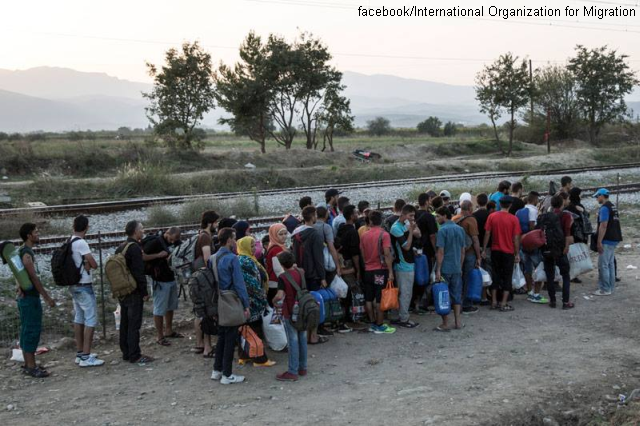Romania and the mandatory refugee quotas
Although it opposed the assigned refugee quotas, Romania will fulfil its obligations as a member of the European Union.

Corina Cristea, 22.08.2017, 12:39
Under the mechanism for relocating refugees set
up in 2015 by the European Commission, Romania was supposed to accommodate over
4,000 people that reached Greece and Italy from Africa and the Middle East. The
real figure is much lower. At present only 710 people registered as refugees
have reached Romania after previously arriving in the two aforementioned
countries. Most of them come from Syria, Iraq, Eritrea and Yemen. The reason
behind this low number is the fact that illegal migrants who are eligible for
relocation to another European country are fewer than the European Commission
had originally expected.
At the time, Romania had expressed its
solidarity with the refugee crisis, but opposed the so-called mandatory quotas
of refugee that each Member State had to receive, and thus refused to vote on
this matter, alongside Hungary, the Czech Republic and Slovakia. Refugees and
migrants are two distinct categories, Foreign Minister Teodor Melescanu
explained, arguing that the former flee a country at war for political reasons,
while the latter might choose to relocate from a failed state seeking better
economic opportunities. Romania has expressed its solidarity in this respect,
the Foreign Minister went on to say, but it has opposed the idea of assigned
quotas. Minister Melescanu said Romania is ready to receive a certain number of
refugees, as any Member State would.
Last week Bucharest offered to accommodate
1,942 refugees from Greece and Italy. On the other hand, Minister Melescanu
pointed out that Romania is taking an active role in operations in the Black
Sea to stop the flow of refugees and rescue people who try to illegally cross
into Romania at the risk of their own life. According to the Foreign Minister,
Romania is working on an initiative to dispatch 50 gendarmes and police
officers to train Iraqi security forces to fight the Islamic State terrorist
organisation.
Romania also pledged to contribute 800,000
euros to the international coalition fighting the Islamic State and helping the
civilian population in conflict areas. We will also allocate 340,000 euros
worth of humanitarian aid to the Syrian people, and we are yet to decide on a
contribution to the EU fund for aiding Syrian refugees in Turkey, the Romanian
Foreign Minister added.






























